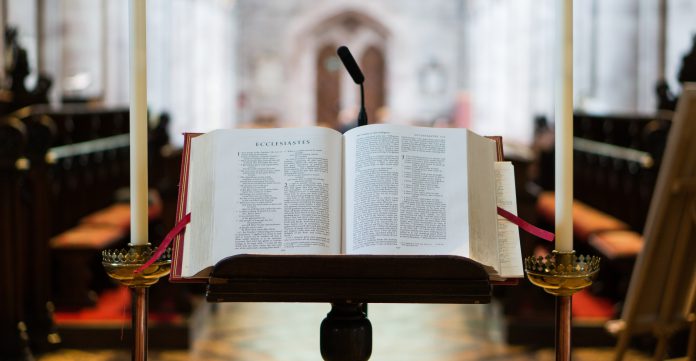We believe that Christian churches are the ones that preach the gospel of absolutely free salvation. They become post-Christian, i.e. belonging to Christ by name but spiritually cursed, if they add any other condition of being saved, and thus making it to Heaven, apart from putting trust in Jesus.
I am amazed that you are so quickly deserting Him who called you by the grace of Christ, for a different gospel; which is really not another; only there are some who are disturbing you and want to distort the gospel of Christ. But even if we, or an angel from heaven, should preach to you a gospel contrary to what we have preached to you, he is to be accursed! As we have said before, so I say again now, if any man is preaching to you a gospel contrary to what you received, he is to be accursed! Galatians 1, 6-9
Among the churches preaching the true gospel, unfortunately, there are theological disagreements on other matters.
These are the main trends within Biblical Christianity:
-
Fundamentalists – biblical principles, once revealed and applied to the believers of the New Covenant (Testament), continue in force till today.
No compromise on these issues is acceptable.
-
Liberals – only a part of principles remains unchanged. They differentiate between more and less important truths. As far as the latter are concerned, the liberalists are ready to compromise.
When it comes to the theology of the Holy Spirit, churches can be divided into:
-
non-Charismatic – the Holy Spirit enters a person’s life at the moment of conversion. Then Jesus baptizes (immerses) them in the Holy Spirit. From this moment on, a man has everything they need to live a fruitful and victorious life. The further part of their life is constant growth toward maturity in Christ.
-
Pentecostal (Charismatic) – belief that after a person converts, they have to pray and wait for a “second work” of grace, which is the baptism in the Holy Spirit. This experience must be accompanied by speaking in tongues and prophecy. Only such a Christian can experience the fullness of life with God.
The issue of leadership in a local church divides Christians into:
-
Presbyterians – a church is governed by elders who have been chosen according to the biblical qualifications. One of them is appointed to take care of the wholeness of church life.
-
Episcopalians – the authority over a church is exercised by an outside council of denomination which nominates a pastor of a given local church (his power is subordinate to that of the council).
-
Congregationalists-democrats – decision-making is based on a congregational majority vote. A pastor is obliged to carry out the decisions reached within the church.
The issue of authority exerted over local church divides churches on:
-
Non-denominational, independent – There is no external authority over local churches, except for God and His Word, in post-apostolic times. Churches should encourage, admonish, comfort, and assist each other but they have to remain independent of each other all the time.
-
Denominational – there is a need for merging local churches into larger associations of churches (denominations), governed by central authorities which have various competencies.
New Covenant Church ranks No.1 in all the classifications mentioned above.







![8th Conference – „God of orphans” [Report]](https://megachurch.pl/wp-content/uploads/2023/06/eng-ZJAZD-LIB-VIII-maj-2023-mini-100x70.jpg)

![The 7th Conference – „Polish special features of Christian education and organizing Christian camps” [Report]](https://megachurch.pl/wp-content/uploads/2023/05/relacja-ze-zjazdu-NOTKA-kwiecien-2022-zjazd-LIB-eng-100x70.jpg)
